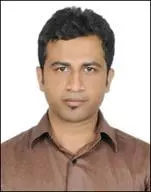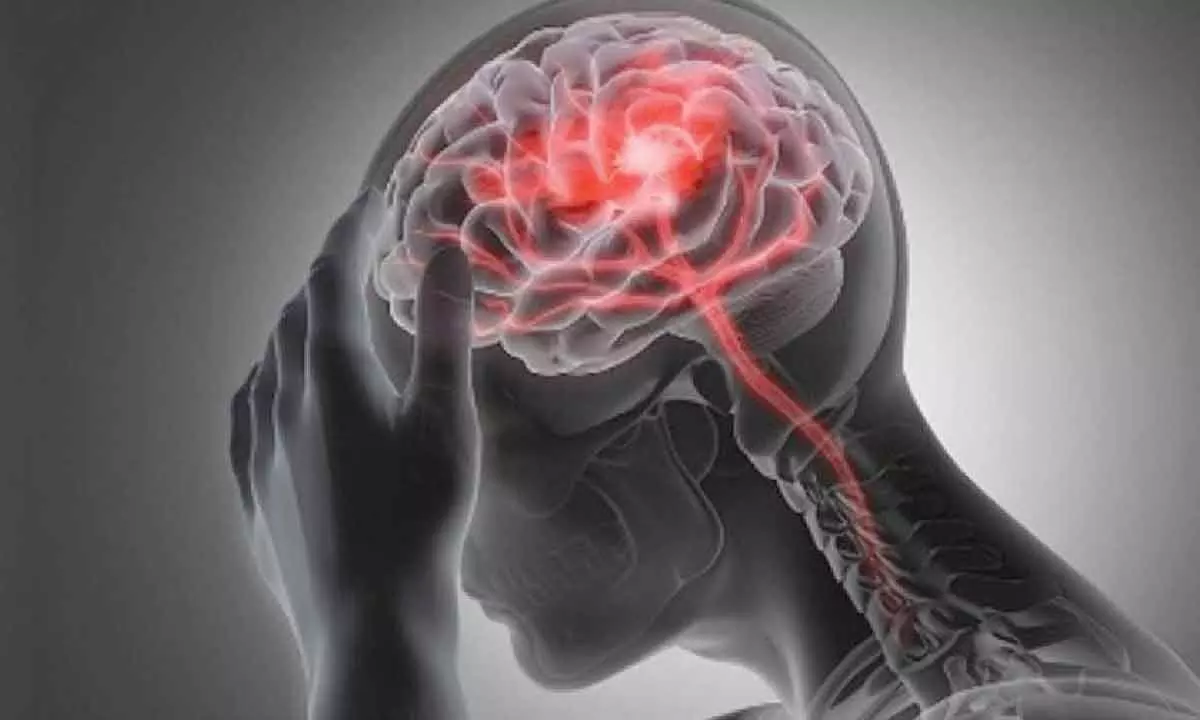Live
- They always want me to win, and now I feel lucky to have been offered a story like ‘Zebra’: Satyadev Kancharana
- ‘Democracy first, humanity first’: PM Modi in Guyana's parliament on two countries' similarities
- PKL Season 11: Telugu Titans register third straight win to top standings
- Is Pollution Contributing to Your COPD?
- NASA Unveils Underwater Robots for Exploring Jupiter's Moons
- Additional Central forces arrive in violence-hit Manipur
- AR Rahman and Saira Banu’s Divorce: Legal Insights into Common Issues in Bollywood Marriages
- 82.7 pc work completed in HPCL Rajasthan Refinery area: official
- Curfew relaxation extended in 5 Manipur districts on Friday
- Tab scam prompts Bengal govt to adopt caution over fund disbursement
Just In
A mother wins fight against autoimmune encephalitis– a complicated medical condition


In late April, Akriti (name changed), a 35-year-old mother of two, had a sudden fever and crippling weakness that soon spiraled into a baffling medical mystery, leaving her family concerned.
Bengaluru : In late April, Akriti (name changed), a 35-year-old mother of two, had a sudden fever and crippling weakness that soon spiraled into a baffling medical mystery, leaving her family concerned. When treatment for fever was not helpful and her symptoms began to deteriorate further, she was admitted to Manipal Hospital Varthur Road in mid-May where she was diagnosed with Autoimmune Encephalitis.
At Manipal, under the care of Dr. Chetan Kumar A, Consultant in Neurology; Dr. Poonam Chandrashekar Awatare, Consultant in Neurology; and Dr. Ramkumar Jayaprakash, Consultant and Head of the Department of Critical Care Medicine, Akriti received a new lease on life.
Akriti’s Story
Akriti’s ordeal innocuously started with a fever that persisted despite treatment. After a brief respite, her condition worsened, marked by sleeplessness, altered behavior, and reduced activity. Concerned, her family sought medical help, leading her to Manipal Hospitals where she received initial treatment for what was diagnosed as Brucella and Scrub typhus infections. Unfortunately, her symptoms returned, accompanied by disturbing neurological manifestations. She began speaking incoherently, unable to recognise even her own family. Fearing the worst, she was rushed to Manipal Hospital Varthur Road in mid-May, where the doctors embarked on a rigorous diagnostic journey.
“Considering the stormy course she was admitted to the ICU. A brain MRI revealed cytotoxic swelling in her corpus callosum, however, her cerebrospinal fluid yielded inconclusive results, adding to the medical team’s mounting concerns. She also experienced a neurological decline that necessitated drastic measures. She was placed on a ventilator as she battled bouts of seizures and involuntary movements. Despite exhaustive tests, including autoimmune panels and heavy metal screenings to eliminate any toxic elements, no clear causes for Akriti’s symptoms were determined, prompting the doctors to suspect autoimmune encephalitis, a rare condition where the body’s immune system attacks its own brain cells,” said Dr. Chetan Kumar A, Consultant - Neurology, Manipal Hospital Varthur.
About Autoimmune Encephalitis
Autoimmune encephalitis is a condition where the body’s immune system mistakenly attacks healthy brain cells. Normally, the immune system defends the body against infections and other threats. However, in autoimmune encephalitis, this defense system gets confused and starts targeting the brain, causing inflammation and damage.
Symptoms can vary widely but often include confusion, memory problems, seizures, and changes in behavior or personality. Sometimes, it can mimic psychiatric disorders or even dementia. Autoimmune encephalitis is often a diagnosis of exclusion. It is important to exclude other autoimmune conditions and infectious conditions such as tuberculosis (TB), Lyme’s disease, etc. It’s important to diagnose autoimmune encephalitis early because treatments, such as medications to suppress the immune response, can often help reduce symptoms and prevent further damage to the brain.
“Having someone on multi-organ supports with continuous ongoing seizure activity was difficult to manage. We had to induce deeper planes of anesthesia for many days, to achieve complete seizure control. Gradually reducing the levels of anesthesia would again lead to the recurrence of seizures. Continuous monitoring through EEG helped us achieve our goal of “burst suppression” of seizure activity. High levels of immune suppression combined with multiple anti-epileptic drugs and anesthesia helped us tide over the crisis period. Meticulous work by the entire team of doctors, nurses, and other support staff prevented her from catching any resistant infections despite her prolonged ICU stay and intense immune suppression.
Preserving her nutritional status, and muscle mass and gradually getting her back on to her feet was a Herculean task, but was made easy due to the steadfast, unwavering, and unfaltering efforts from Akriti, her family, and the entire medical team” opined Dr. Ramkumar Jayaprakash, Consultant and Head, Department of Critical Care Medicine, Manipal Hospitals, Varthur Road.
The Treatment Journey
After establishing the diagnosis of Autoimmune Encephalopathy, treatment became a delicate balance of managing symptoms and targeting the suspected autoimmune response. Akriti required ventilator support. She was in a coma and underwent rounds of immunoglobulin therapy and pulse steroids to quell her immune system’s assault on her brain.
The road to recovery was slow and uncertain; her medical team vigilantly adjusted treatments based on her evolving condition. Weeks passed before signs of improvement emerged. Gradually, Akriti regained consciousness, her speech and cognition returning to normal. Physical therapy helped her regain strength, and after a challenging stint on the ventilator, she was finally able to breathe independently.
Her discharge in early July marked a remarkable turnaround from the brink of uncertainty. Reflecting on her journey, Akriti’s doctors emphasised the challenges of diagnosing and treating such complex cases.
Autoimmune encephalitis, they explained, often defies straightforward diagnosis, relying heavily on clinical judgment and persistent monitoring. Akriti’s case underscored the importance of early intervention and a multidisciplinary approach in managing such conditions. As she continues her recovery at home, supported by ongoing therapies and careful monitoring, Akriti remains a testament to resilience in the face of medical adversity.
In a world where medical mysteries can upend lives in an instant, the dedication and determination portrayed by the doctors at Manipal Hospital Varthur Road and Akriti’s resilience serve as a beacon of hope—a reminder of the power of persistence, expertise, and the human spirit in overcoming the most daunting challenges.

© 2024 Hyderabad Media House Limited/The Hans India. All rights reserved. Powered by hocalwire.com






